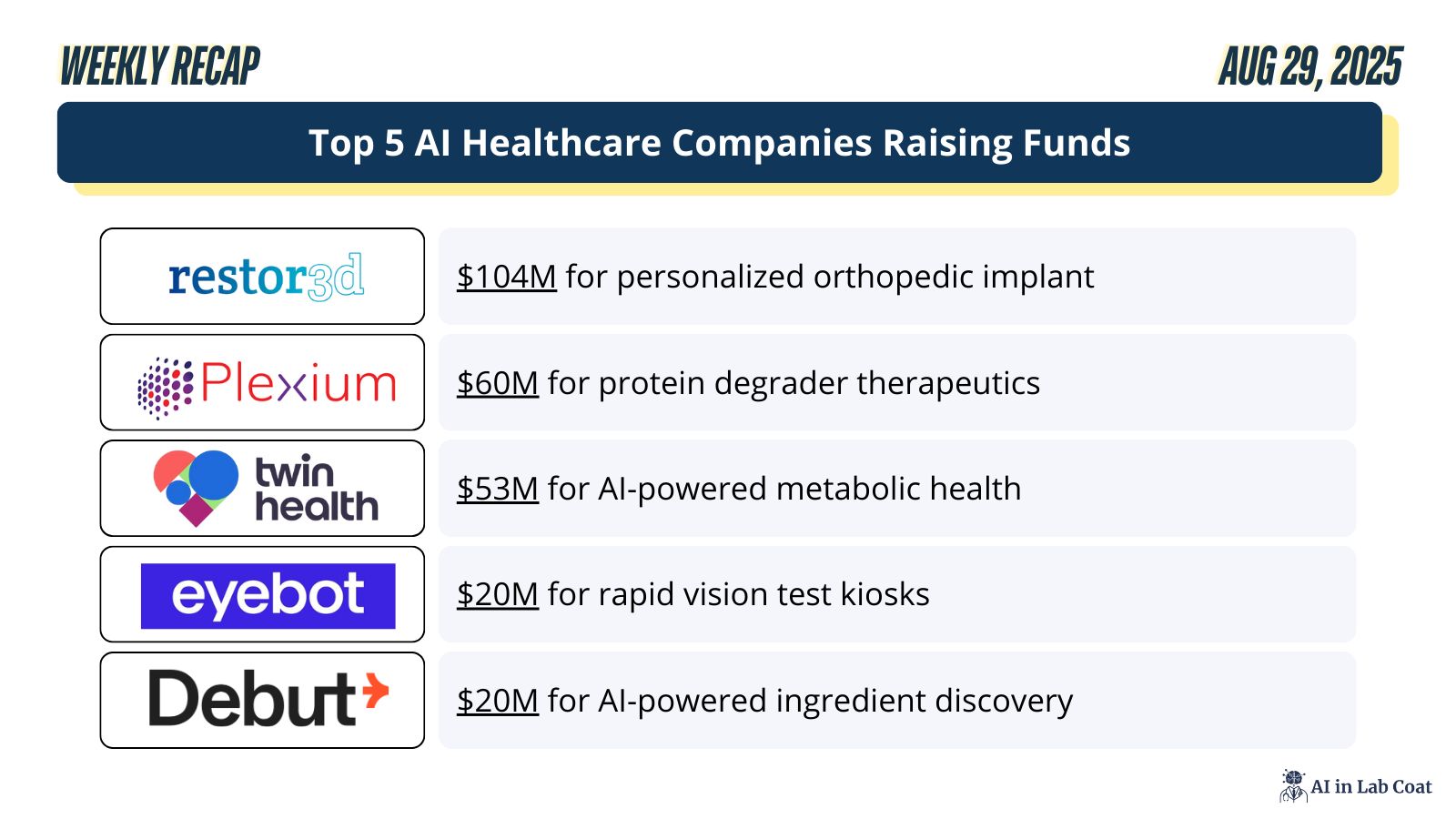
Happy Friday! It’s August 29th.
Hospitals are being hit harder than ever with phishing scams, and AI is making those attacks almost impossible to spot.
Incidents spiked 700% last year after generative AI went mainstream. Now, emails look exactly like official hospital memos or patient portal alerts. So when healthcare systems are already under stress, even a single wrong click can take down services or lock up patient records.
AI has two faces in healthcare, one that promises progress, and one that exposes vulnerabilities. Hospitals are stuck balancing both.
Our picks for the week:
Featured Research: AI Improves Flu Vaccine Picks
Product Pipeline: Smart OR Platform Cuts Paperwork
Read Time: 3.5 minutes
FEATURED RESEARCH
AI Predictions Match or Exceed WHO’s Seasonal Flu Strain Recommendations

Every year, health officials face a difficult gamble: the choice of which influenza strains go into the seasonal vaccines, months before flu season begins. If their pick matches circulating viruses, then protection can reach up to 60%. But in bad years, the effectiveness can fall below 20%, leaving millions vulnerable.
Between 2012 and 2021, CDC data show overall vaccine effectiveness in the U.S. averaged below 40%.
Scientists at MIT’s CSAIL and Jameel Clinic have introduced VaxSeer, an AI program designed to take some of the guesswork out of this process. Using data trained on decades of viral sequences and lab test results, the system predicts how flu strains will evolve and how well vaccines will neutralize them.
Testing the model: In a 10-year retrospective analysis, VaxSeer’s vaccine strain recommendations outperformed the WHO’s picks in nine out of ten flu seasons for A/H3N2, and in six out of ten for A/H1N1. In one case, the model flagged a strain a full year before the WHO added it.
The study also found a strong correlation between VaxSeer’s predictions and real-world outcomes like CDC-reported vaccine effectiveness and reduced flu-related doctor visits.
Why this matters: Seasonal influenza infects millions of people and leads to hundreds of thousands of hospitalizations worldwide each year.
Even a modest improvement in vaccine match can translate into thousands of prevented illnesses and medical visits. Advancements like VaxSeer show the potential of helping public health agencies make faster, more accurate strain selections, closing the gap between viral evolution and vaccine design.
For more details: Full Article
Brain Booster
Which of these animals plays a surprising role in helping scientists predict future flu strains?
Select the right answer! (See explanation below and source)
What Caught My Eye
PRODUCT PIPELINE
Clinicians Gain Back Hours as AI Automates Operating Room Documentation for EHRs
Clinicians spend nearly half their day entering notes into electronic health records (EHR), an average of 3.5 to 6 hours. Artisight thinks AI can change that.
The Chicago-based smart hospital company has launched a platform that uses AI and computer vision to autonomously document operating room activity.
From recording when a patient enters or leaves, to logging the start and end of surgery; every step is automatically timestamped into the EHR. The system also prompts staff in real time, alerting surgeons to scrub in or notifying the next surgical team if a case runs long.
Hospitals already using the platform report a 16x return on investment and a 5% increase in surgical scheduling. By offloading routine documentation, the company says clinicians can focus more on patients and less on paperwork.
This is another step in turning hospitals into data engines, where every action, movement, and outcome feeds back into smarter care.
I do wonder.. at what point do we stop calling it documentation and start calling it surveillance? For now, if it benefits the patient, I’m all on board.
For more details: Full Article
Top Funded Startups

Byte-Sized Break
📢 Other Happenings in Healthcare AI
Researchers at Uppsala University developed an AI tool that identified early signs of prostate cancer in 80% of biopsy samples initially deemed healthy, offering a potential breakthrough in early detection. [Link]
AI-driven phishing attacks have surged 700% in healthcare, prompting urgent calls for hospitals to adopt identity-first security, phishing-resistant authentication, and continuous staff education to protect sensitive data and patient care. [Link]
Colorado delayed implementation of its 2024 AI law to June 2026 after tech industry pushback derailed a special session compromise, giving lawmakers more time to revise the legislation during the next regular session. [Link]
Have a Great Weekend!

❤️ Help us create something you'll love—tell us what matters!
💬 We read all of your replies, comments, and questions.
👉 See you all next week! - Bauris
Trivia Answer: C) Ferrets
Ferrets catch the flu in a similar way to humans and show similar symptoms, making them the go-to lab animal for testing how flu viruses behave and how well vaccines might work. [Source]


